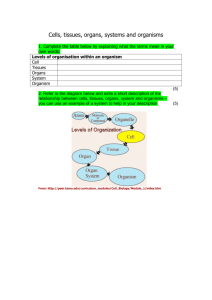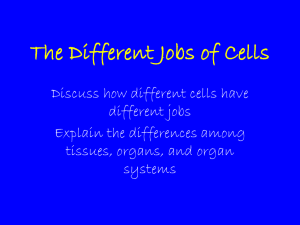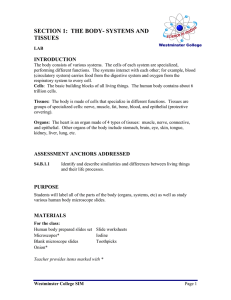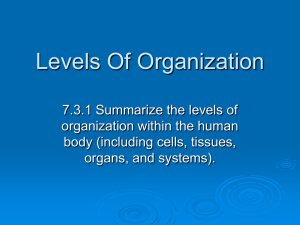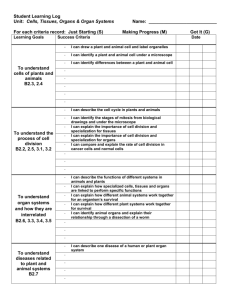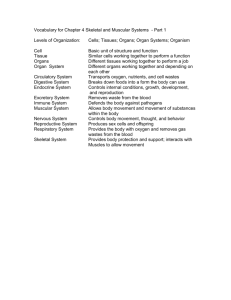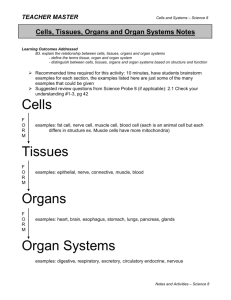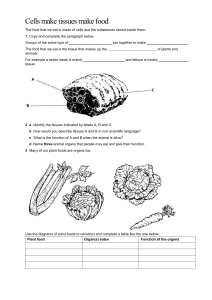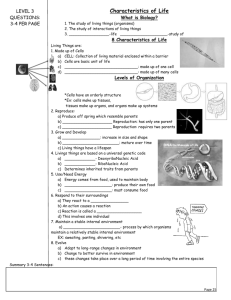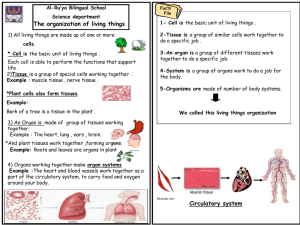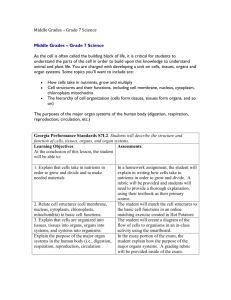How do Cells Work Together?
advertisement
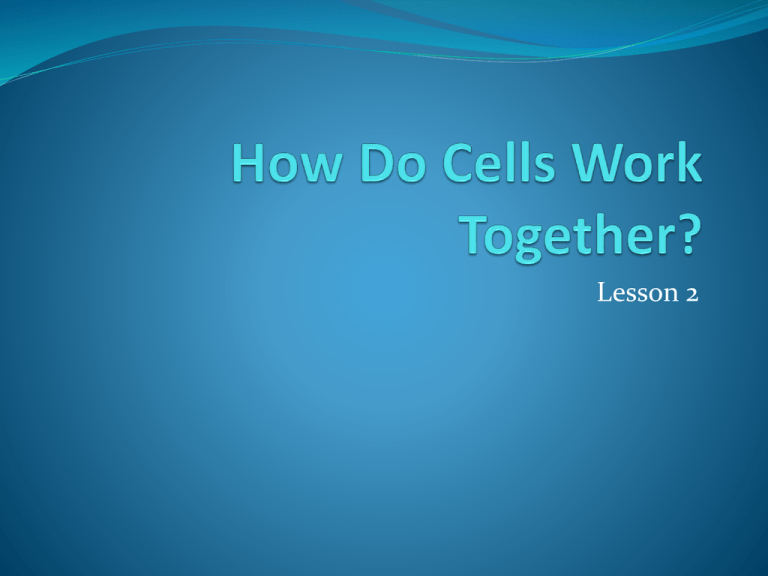
Lesson 2 How Do Cells Work Together? Objectives: You will know that living things are different, but share similar structures. You will know that similar cells form different kinds of structures. How Do Cells Work Together? Questions: What are possible reasons why one cell might have a size or shape different from that of another cell? Do all cells have the same job? How Do Cells Work Together? Purpose: We are going to read about different cell shapes and purposes as well as the special structures of some cells. We will recognize how the shape of a cell is important to its job. How Do Cells Work Together? Quick Summary Cells have specialized shapes and structures that help them perform specialized functions. Nerve cells are long and branching. Red blood cells are rounded discs. Skin cells are flat. Some cells have different kinds of hair-like structures that do different jobs. How Do Cells Work Together? Questions What are cilia and what do they do? What type of cell is responsible for communicating signals between the brain and other parts of the body? How does the shape of a skin cell help it do its job? Suppose red blood cells were sphere-shaped rather than saucer-shaped. What effect might this shape have on the cell's ability to carry oxygen through the body? How Do Cells Work Together? Objective You will understands how similar cells are organized to form structures (for example, tissue, organs) in plants and animals. How Do Cells Work Together? Quick Summary Cells work together to form tissues. Muscles, bones, and nerves are all specific tissues. Tissues can work together to form an organ, which performs a main job for the body. Your skin has multiple tissues that work together. Skin is the largest organ in your body. It protects your internal organs, keeps out germs, and prevents great water loss. How Do Cells Work Together? Questions How does a nerve cell’s shape and structure help it do its job? How is a tissue like a team? Why is it an advantage to have dead cells on the surface of the body? What is the name of the dead tissue that helps hold warm air near your body? How does cell organization help tissues and organs function better? Antiperspirant stops the release of sweat from sweat glands. What effect does this have on cells and the body? How Do Cells Work Together? Independent Work Write a description of skin tissue as pictured on page 45 What causes goose bumps?

